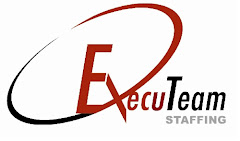Sending a thank you letter is as important as interview preparation. But they’re tough to write, so people either tell themselves that not sending one doesn’t matter, or they procrastinate until it’s too late and almost pointless anyway. Anyone who tells themselves that foregoing a fundamental rule of etiquette doesn’t matter, not only taints themselves in the mind of the interviewer, but misses two additional opportunities to sell.
A thank you letter is an additional sales piece. As I’ve said before, you’re selling a product and the product is you. So beyond the reason of etiquette, the letter sells you as a polite person who recognizes that the interviewer gave them something valuable: time and consideration.
A fundamental rule of sales is to keep the product in front of the buyer and reinforce its benefits. So beyond the etiquette, the letter gives you ample space to comment on what you liked about the company, why your skills are of benefit to them, and how much you’re interested. If something wasn’t tied up, or was left unsatisfactorily, you should use the space to further address the issue.
If you miss the opportunity to reinforce your skills and tie them to the job requirements, you miss a chance to sell. If you miss the opportunity to address a negative, and leave it to fester in the mind of the interviewer, you’ve failed to overcome an objection. And if a buyer has an objection to the product, if it isn’t addressed the likelihood of the sale is slim.
The third opportunity missed by skipping the thank you letter is the chance to keep your name in front of the buyer. Read newspapers? Watch TV? See the same ads over and over and over again? It’s somewhat the same principle – if you keep your name in front of the hiring authority, they’re more likely to remember you.
So let’s look at how to create a thank you letter so that it becomes a less odious task.
First paragraph
Open with the obligatory thank you and include how you enjoyed the meeting. Say why. Maybe the people you met were exceptional. Perhaps their company philosophy was exactly what you had hoped for. It doesn’t matter. Pick something out, and put it down. But make it real.
Second paragraph
What took place during your interview? Pull out a piece of information that pleased you, say what it was, and tell them why. For instance: I was particularly pleased to find that X company/the opportunity/your management style has/was/is/does whatever. This is exciting because…… . You can expand on whatever it is for a few sentences by elaborating: how it relates to something you’ve experienced and like -- or didn’t liked. Discuss a particular aspect of the job you find appealing and reiterate why you’d be successful at it or how long you’ve been performing it or how similar it is to something you’ve done in the past.
Third paragraph
You can add a similar paragraph if the second was fairly short. Or you can wind it up if it was a bit lengthy. If there was something that came up that needed clarification or about which they were dubious, address it and clear it up here.
Fourth paragraph
Wind it up. Re-iterate your interest. Be enthusiastic! Leave the job speak behind. If you really want to be hired, let your interest shine through.
Caution: Don’t start every sentence with “I”. It may be the easiest way to write the letter but it’s not only repetitive, it’s a turn off.
If you really want the job, the letter will be easy to write because it will contain genuine impressions. If you choose to skip the letter, perhaps you don’t care if you’re hired or not. But make that decision yours and withdraw from the process instead of letting the decision be made for you.
- Judi Perkins
Judi Perkins, the How-To Career Coach, was a recruiter for 22 years, consulting with hundreds of hiring authorities throughout the hiring process. She’s seen over 500,000 resumes, knows how hiring authorities think and how they hire. As a result she understands and teaches what other coaches don’t: why the typical strategies in finding a job so often fail, what to do instead, and why. She’s been on PBS’s Frontline, will be in the May issue of Smart Money magazine, and has been quoted frequently in numerous articles for CareerBuilder, MSN Careers, Yahoo Hot Jobs, and the New York Times, among others. She’s also been featured as an expert in numerous career books. Sign up for her free newsletter at www.FindthePerfectJob.com!
From www.net-temps.com
Tuesday, June 1, 2010
Subscribe to:
Post Comments (Atom)




No comments:
Post a Comment